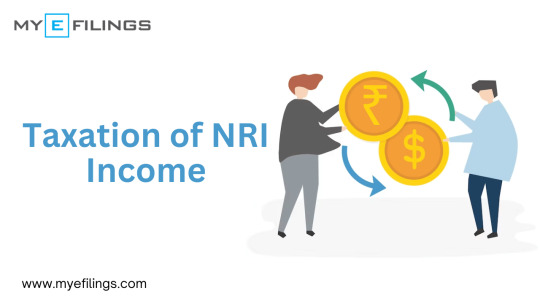#income tax returns for nri
Explore tagged Tumblr posts
Text
0 notes
Text
"NRI Tax Filing in India: ITR, DTAA & TDS Refund | India for NRI"
"File your income tax return in India with ease. Learn about NRI tax filing, DTAA, TDS refunds, and new tax rules for NRIs, OCI holders, and non-residents."
0 notes
Text

NRI income tax return dwarka
For NRI Income Tax Return filing near Dwarka, RBG Consultant is your trusted partner. Specializing in NRI taxation, they offer personalized services, including filing returns, resolving tax queries, and ensuring compliance with Indian tax laws. With expertise in foreign income, DTAA benefits, and investment-related tax issues, the RBG Consultant simplifies the process. Located conveniently, they provide efficient and timely solutions. Contact the RBG Consultant for seamless NRI tax filing assistance today!
0 notes
Text
If You Lost Your PAN Card, complete guide to How to Apply for a Duplicate pan card!
What is a Duplicate PAN Card?
A Duplicate PAN (Permanent Account Number) card is a reissued version of the original PAN card, typically requested when the original is lost, damaged, or needs to be replaced. The PAN card is a crucial document in India, used for various financial transactions and tax purposes, serving as a unique identifier for individuals and entities.
Steps to Apply for Duplicate PAN Card Online
1. Visit the Official Website: Go to the websites of NSDL (now Protean) or UTIITSL. 2. Select the Application Type: Choose “Reprint of PAN Card” or “Duplicate PAN Card”. 3. Fill in the Form: Provide necessary details like your PAN, name, and date of birth. 4. Submit Documents: Upload required documents, such as identity proof. 5. Pay the Fee: Make the payment using the available online options. 6. Receive Acknowledgment: After submission, you’ll receive an acknowledgment receipt with a token number for tracking.
Applying Duplicate PAN Card Without Changes
If you need a duplicate PAN card without any changes in personal details, the process is simplified. Follow the same online steps as above, ensuring you select the option for a duplicate without changes. Your existing information will be retained.
Who Can Apply For Duplicate PAN Card?
Any individual or entity that holds a PAN card can apply for a duplicate. This includes:
- Indian citizens - Non-resident Indians (NRIs) - Companies - Partnerships - Trusts
When to Apply for a Duplicate PAN Card
You should apply for a duplicate PAN card in the following situations:
- Loss or theft of the original card - Damage or wear and tear making the card unreadable - Incorrect details on the original card (if needing a change, opt for the correction process instead)
Documents Required for a Duplicate PAN Application
To apply for a duplicate PAN card, you typically need:
- A copy of your lost or damaged PAN card (if available) - Identity proof (e.g., Aadhar, passport, voter ID) - Address proof (e.g., utility bill, bank statement) - Passport-sized photographs - Payment receipt (for online applications)
Fees to Apply for a Duplicate PAN Card
The fee for applying for a duplicate PAN card varies based on the applicant’s location:
- For Indian residents: Approximately ₹110 (including GST) - For applicants outside India: Approximately ₹1,020 (including GST)
Check the latest fee structure on the official websites before applying.
Steps to Download a Duplicate PAN Card
Once your duplicate PAN card application is approved, you can download it:
1. Visit the PAN Service Website: Go to NSDL or UTIITSL. 2. Select ‘Download PAN’: Look for the option to download the e-PAN. 3. Enter Details: Provide your PAN and acknowledgment number. 4. Authenticate with OTP: An OTP will be sent to your registered mobile number for verification. 5. Download the Card: After verification, download the e-PAN card.
Steps to Surrender a Duplicate PAN Card
If you have received a duplicate PAN card but realize you have multiple PANs, it’s advisable to surrender the extra one:
1. Write a Request Letter: Address it to the Income Tax Department, mentioning your details and PAN numbers. 2. Include Documents: Attach copies of your PAN cards and identity proof. 3. Submit: Send the letter to the appropriate IT office or online via the official portal.
Conclusion
A duplicate PAN card is essential for maintaining seamless financial transactions and tax compliance. The process for obtaining one, whether online or offline, is straightforward. Ensuring you have a valid PAN card helps in avoiding penalties and facilitates smoother dealings with banks and other financial institutions.
Related article: How to track your Pan card status? , Pan card application form pdf
#Duplicate PAN card#Lost PAN card#Apply for PAN card#PAN card reissue#PAN card application process#Online PAN card duplicate#Offline PAN card duplicate#PAN card fees#PAN card documents required#PAN card tracking#Income Tax PAN#e-PAN card download#Surrender PAN card#PAN card for individuals#PAN card for NRIs#Surrender Duplicate PAN Card#Surrender Duplicate PAN Card how to apply#download pan card online#pan application form pdf#apply pan card application#income tax login#income tax return#taxring#itr filing#gst registration#tax refund#income tax audit#tax audit#income tax
0 notes
Text
Simplify Your Taxes with TaxDunia: Expert NRI ITR Filing

A tax consultant can help reduce your tax burden, take advantage of tax deductions, and handle your taxes effectively. With more specialized knowledge than typical tax preparers, tax consultants assist with tax planning, inheritance matters, charitable donations, and other intricate tax requirements. These professionals often have backgrounds in tax law or accounting.
When it comes to managing taxes, having the right guidance can make all the difference. TaxDunia has established itself as the best income tax consultant in India, providing a range of tax services tailored to meet the needs of individuals and businesses. In this blog, we'll explore what makes TaxDunia stand out as a top tax consultant and how it can help you navigate the complexities of the Indian tax system.
Understanding the Importance of ITR Filing
Before exploring how TaxDunia can assist you, it's essential to understand why ITR filing is crucial. Filing an Income Tax Return is not just a legal obligation but also brings several benefits:
Legal Compliance
Filing ITR is mandatory for individuals and entities earning above a specified income threshold. Non-compliance can lead to penalties, interest on the due amount, and even legal repercussions.
Claiming Refunds
If you have paid excess tax, filing an ITR is the only way to claim a refund from the Income Tax Department.
Loan and Visa Applications
Financial institutions and visa authorities often require proof of income, and ITR receipts serve as essential documents for verifying your income and financial stability.
Carry Forward of Losses
Filing your ITR allows you to carry forward losses to subsequent years, which can be adjusted against future income, reducing your tax liability.
Avoiding Penalties
Filing your ITR on time helps avoid penalties and interest on late payment of taxes.
The Importance of Professional Tax Consultation
Navigating the Indian tax system can be daunting. With frequent changes in tax laws, various types of taxes, and numerous compliance requirements, having a professional tax consultant can save you time, money, and stress. TaxDunia offers expert advice and personalized services that ensure you comply with the law while optimizing your tax liabilities.
Comprehensive Tax Services Offered by TaxDunia
TaxDunia offers a wide range of services to cater to different tax-related needs. Here are some of the main services that offered:
Individual Tax Services
For individuals, managing personal taxes can be complicated. TaxDunia provides comprehensive services that include:
Income Tax Return Filing
Tax Planning and Advisory
Capital Gains Tax Calculation
Wealth Management and Tax Saving Strategies
Corporate Tax Services
Businesses face a unique set of challenges when it comes to taxes. TaxDunia offers tailored services for corporations, including:
Corporate Tax Return Filing
Tax Compliance and Regulatory Advisory
Transfer Pricing Advisory
GST Compliance and Filing
Tax Audit and Assurance Services
Specialized NRI Services
Non-Resident Indians (NRIs) have specific tax requirements. TaxDunia specializes in NRI tax consultancy services, including:
NRI Income Tax Return Filing
Double Taxation Avoidance Advisory
Repatriation of Funds
Investment Advisory and Tax Planning
Why Choose TaxDunia?
Expertise and Experience
TaxDunia boasts a team of highly qualified and experienced tax consultants. Their deep understanding of Indian tax laws and regulations ensures that you receive accurate and effective tax advice.
Personalized Service
Every client is different, and so are their tax needs. TaxDunia offers personalized services that are tailored to your specific requirements, ensuring that you get the best possible tax outcomes.
Cutting-Edge Technology
In today's digital age, leveraging technology is crucial for efficient tax management. TaxDunia uses advanced software and tools to streamline the tax filing process, making it faster and more accurate.
Client-Centric Approach
At TaxDunia, the client always comes first. They are committed to providing high-quality services and maintaining transparency and integrity in all their dealings. Their client-centric approach has earned them a reputation as the best income tax consultant in India.
Understanding the Tax Filing Process
Filing income tax returns can be a complex process, especially for those unfamiliar with the Indian tax system. Here's a step-by-step guide to help you understand the tax filing process with TaxDunia:
Step 1: Gathering Information
The first step in the tax filing process is gathering all necessary information and documents. This includes income statements, investment proofs, and other relevant financial documents. TaxDunia assists you in compiling all the required information.
Step 2: Tax Calculation
Once all the information is gathered, the next step is calculating your tax liability. TaxDunia uses advanced software to ensure accurate tax calculations, taking into account all deductions and exemptions.
Step 3: Filing the Return
After calculating the tax liability, the next step is to file the income tax return. TaxDunia ensures that your return is filed accurately and on time, avoiding any potential penalties.
Step 4: Post-Filing Support
After filing the return, TaxDunia provides post-filing support, including handling any queries from the tax authorities and assisting with any necessary follow-ups.
Staying Compliant with Changing Tax Laws
The Indian tax system is constantly evolving, with frequent changes in tax laws and regulations. Staying compliant can be challenging, but with TaxDunia's expert guidance, you can rest assured that you are always up to date with the latest changes.
The Benefits of Professional Tax Consultation
Working with a professional tax consultant like TaxDunia offers several benefits, including:
Accuracy: Avoid errors in your tax filings that could lead to penalties.
Efficiency: Save time and effort by letting experts handle your tax matters.
Tax Optimization: Maximize your tax savings through effective planning and advisory.
Peace of Mind: Reduce stress by knowing that your taxes are in capable hands.
Conclusion
When it comes to managing your taxes, having the right partner can make all the difference. TaxDunia, the best income tax consultant in India, offers a comprehensive range of services tailored to meet your specific needs. With their expertise, personalized approach, and commitment to excellence, you can navigate the complexities of the Indian tax system with ease and confidence. Whether you are an individual, a business, or an NRI, TaxDunia is your trusted partner for all your tax needs.
Other Link
Top Income Tax Consultants
Private Limited Company Registration
One Person Company Registration Service
Public Limited Company Registration Service
GST Return Filing Services
Trademark Registration service
#Top Income Tax Consultants#Best Income Tax Advisors#Tax Consultant Services#best income tax consultant in india#Income Tax Return Filing Service in India#NRI Tax Consultancy Service#NRI ITR Filling#income tax#itr filling#taxdunia#tax consultants#gst filling#finance#itr filing#gst return
0 notes
Text
#taxation#usa#finance#financial planning#indian nri#accounting#income tax return#income tax filing#financial freedom
0 notes
Text
Navigating Tax Season: A Guide For NRIs in Income Tax Return Filing

Sometimes, it becomes a difficult journey for NRIs i.e. Non-Resident Indians to file the income tax return in India. But you can make this journey smooth with the help of right guidance & preparation. Here, in this comprehensive guide we will provide some essential tips for NRIs so that they can navigate the IR Filing process effectively:
Some ITR Filing Tips for NRIs
Understand Your Residential Status: NRIs must have to determine their residential status for tax purposes. NRIs have to pay tax in India on the basis of their residential status that depends on the number of days spent by them in India during the financial year.
Declare Global Income: If you are an NRI, then you have to declare your global income in India that includes the income that has been earned in abroad. It is essential to report all the sources of income accurately including income from salaries, rental properties, capital gains, interest, dividends, etc. to avoid the penalties.
Familiarize Yourself with DTAA: NRIs can utilize the benefit of Double Taxation Avoidance Agreements (DTAA) that has been signed between India & other countries. Under this, you as an NRI can claim relief from double taxation by either claiming tax credit or opting for exemption on certain types of income.
Explore Tax Benefits: Under the Indian Income Tax Act, NRIs can claim deductions and exemptions to reduce their tax liability. NRIs can claim exemptions on certain incomes like long-term capital gains on specified investments.
File Timely Returns: Make sure that you file the Income Tax Returns on time to avoid penalties and interest. Usually, the due date for filing returns for NRIs is July 31st of the assessment year, but you should stay updated with any changes in deadlines.
Conclusion
NRIs can navigate the complexities of filing Income Tax Return easily and confidently by following the above mentioned tips. Always remember, stay informed and proactive which is a key to navigate the world of taxation smoothly.
#income tax#income tax return#income tax return filing#income tax return filing online#itr filing#ITR Filing by NRIs#ITR Filing tips for NRIs
0 notes
Text
How NRIs can Reactivate Inoperative PAN Cards - A Step-by-Step Guide
Introduction In the Indian financial landscape, PAN (Permanent Account Number) cards are vital for taxpayers, including Non-Resident Indians (NRIs). Recent regulatory updates have linked the status of PAN cards to Aadhaar, and the discontinuation of this linkage has led to some PAN holders' status changing from "Active" to "Inoperative." Nevertheless, NRIs can still use their inoperative PANs to file Income Tax Returns (ITR).
Click here to know more

0 notes
Text

The taxation of Non-Resident Indian (NRI) income depends on various factors, including the type of income earned and the individual's residential status for tax purposes. Here are some key points to consider:
Residential Status: The residential status of an individual determines the scope of taxation in India. The Income Tax Act categorizes individuals into three groups: Resident and Ordinarily Resident (ROR), Resident but Not Ordinarily Resident (RNOR), and Non-Resident (NR). NRIs are taxed only on income earned or received in India or income deemed to accrue or arise in India.
Taxable Income: The income earned by NRIs can be broadly classified into two categories: a. Income earned in India: This includes income from salaries, house property, capital gains, business/profession, and other sources like fixed deposits, savings accounts, etc., held in India. b. Income earned abroad: Income earned outside India is generally not taxable in India for NRIs. However, if an NRI receives income from a business or profession set up in India or from a source in India, it may be subject to taxation.
Tax Rates: The tax rates applicable to NRIs are the same as those for residents. The tax slabs and rates are determined by the Indian government and may change from year to year.
Double Taxation Avoidance Agreements (DTAA): India has signed DTAA with several countries to avoid the double taxation of income. Under DTAA, if an NRI's income is taxable in both India and their country of residence, they can claim relief by either claiming an exemption or tax credit.
Tax Deductions and Exemptions: NRIs are eligible for certain deductions and exemptions on specific types of income, similar to residents. For example, deductions can be claimed on investments made under Section 80C, such as life insurance premiums, Provident Fund contributions, etc.
TDS (Tax Deducted at Source): TDS is applicable to NRIs in certain cases, such as interest income from fixed deposits, rent income, etc. The rates of TDS may vary depending on the type of income and specific provisions of the Income Tax Act.
Filing Income Tax Return: NRIs are required to file an income tax return in India if their taxable income exceeds the specified threshold or if they have certain types of income, even if the income is below the threshold. The due date for filing the return may differ for NRIs compared to residents.
Read more: https://myefilings.com/taxation-of-nri-income-exploring-different-categories-and-tax-rates/
#myefilings#business#india#taxes#income tax#company#income taxes#nri services#tax filing#tax returns
0 notes
Text
Food License Registration in India with The Tax Planet
Ensure your food business complies with legal standards by obtaining a food license registration in India with The Tax Planet. Our expert team simplifies the process, guiding you through every step to secure your FSSAI license swiftly and efficiently. Whether you are starting a restaurant, food truck, catering service, or packaged food business, we provide comprehensive support, from document preparation to application submission. Trust The Tax Planet for hassle-free food license registration, ensuring your business meets all regulatory requirements and operates smoothly. Protect your brand and build consumer trust with our reliable licensing services.
#roc filing services in india#gst services in india#company formation in india#income tax services in india#income tax consultants in india#income tax solutions in india#gst registration in india#roc filing in india#roc compliance in india#income tax returns for nri
0 notes
Text
"NRI Tax Filing in India: ITR, DTAA & TDS Refund | India for NRI"
"File your income tax return in India with ease. Learn about NRI tax filing, DTAA, TDS refunds, and new tax rules for NRIs, OCI holders, and non-residents."
0 notes
Text
NRI income tax return dwarka
For NRI Income Tax Return filing near Dwarka, RBG Consultant is your trusted partner. Specializing in NRI taxation, they offer personalized services, including filing returns, resolving tax queries, and ensuring compliance with Indian tax laws. With expertise in foreign income, DTAA benefits, and investment-related tax issues, the RBG Consultant simplifies the process. Located conveniently, they provide efficient and timely solutions. Contact the RBG Consultant for seamless NRI tax filing assistance today!
0 notes
Text
Income Tax Advisors in Delhi by SC Bhagat & Co.: Your Trusted Tax Partner
Managing income tax can be overwhelming for individuals and businesses alike, especially with constantly changing tax laws and compliance requirements. This is where the expertise of Income Tax Advisors in Delhi by SC Bhagat & Co. comes into play. Renowned for their in-depth knowledge and client-focused approach, SC Bhagat & Co. ensures seamless tax planning and compliance, helping clients achieve financial efficiency and peace of mind.
Why Choose SC Bhagat & Co. as Your Income Tax Advisor in Delhi?
Decades of Experience SC Bhagat & Co. has been a trusted name in Delhi for years, offering expert advice and practical solutions to simplify tax-related challenges for individuals and organizations.
Comprehensive Tax Solutions From tax filing to representation during audits, SC Bhagat & Co. offers end-to-end income tax advisory services. Their team of skilled professionals ensures that clients stay compliant while minimizing their tax liabilities.
Client-Centric Approach At SC Bhagat & Co., the focus is always on understanding the unique needs of each client. Whether you are an individual, a small business, or a large corporation, they tailor their services to meet your specific requirements.
Accuracy and Timeliness Filing income tax returns or resolving tax disputes requires precision and adherence to deadlines. SC Bhagat & Co. ensures that all processes are completed on time, avoiding penalties and ensuring compliance.
Services Offered by SC Bhagat & Co.
Income Tax Planning and Filing Effective tax planning can significantly reduce your tax burden. SC Bhagat & Co. provides:
Strategic tax planning for individuals and businesses Assistance with accurate filing of income tax returns Guidance on deductions, exemptions, and rebates
Tax Compliance and Representation Stay on top of your tax obligations with SC Bhagat & Co.’s services, including:
TDS (Tax Deducted at Source) compliance GST integration with income tax Representation during income tax assessments and appeals
Business Tax Advisory For businesses, navigating tax laws can be complex. SC Bhagat & Co. offers expert guidance on:
Corporate tax planning Advisory for startups and SMEs Tax structuring for mergers and acquisitions
NRI Taxation Services NRIs often face unique tax challenges in India. SC Bhagat & Co. specializes in:
Resolving double taxation issues Filing income tax returns for NRIs Advising on property and investment taxation Why Income Tax Advisors in Delhi are Essential Delhi, being a bustling hub for businesses and professionals, requires expert tax advisory services. Engaging an experienced income tax advisor like SC Bhagat & Co. offers numerous benefits:
Tax Savings: Maximize your savings with proper tax planning. Compliance: Avoid legal complications by staying up-to-date with tax regulations. Stress-Free Process: Leave the complex tax calculations and filings to experts.
#gst#taxation#accounting firm in delhi#accounting services#direct tax consultancy services in delhi#tax consultancy services in delhi#taxationservices
5 notes
·
View notes
Text
NRI Real Estate in India: 6 Crucial Considerations Before Investing
For NRIs considering **real estate in India**Making informed decisions is essential for a successful investment journey. As the **growth of real estate in India** continues, understanding the landscape can unlock lucrative opportunities. Here are six critical factors to consider before making your investment.

1. Financial Regulations
Before diving into **NRI investment in India**, familiarize yourself with the financial regulations governing property purchases. NRIs can buy residential properties, but it's crucial to understand restrictions on agricultural land and commercial properties.
2. Tax Implications
Tax laws can significantly impact your returns on investment. NRIs must be aware of income tax, capital gains tax, and property tax obligations. Consulting a tax advisor can help clarify these aspects and optimize your financial strategy.
3. Repatriation of Funds
Understanding how to repatriate funds is vital for NRIs. The Reserve Bank of India (RBI) allows repatriation of up to $1 million annually, but certain conditions must be met. Ensure you are aware of these rules to facilitate smooth fund transfers.
4. Property Valuation
Engaging with reputable services like FutureProperty can help ensure you make sound investments. Their expertise in **real estate in India** includes thorough property valuations and insights into market trends, which are crucial for informed decision-making.
5. Location and Growth Potential
The location of your investment can significantly influence its value. Look for areas with high growth potential, as the **growth of real estate in India** is often concentrated in developing urban centers. Research local infrastructure projects and amenities that may boost property values.
6. Legal Compliance
Lastly, ensure all legal aspects are covered. Verify property titles, ownership documents, and any pending dues. FutureProperty offers valuable services to guide you through the legal processes involved in **NRI investment in India**, ensuring a hassle-free experience.
Conclusion
Investing in **real estate in India** as an NRI can be a rewarding venture if approached with the right knowledge and support. By considering these crucial factors and leveraging services from FutureProperty, you can navigate the complexities of the Indian property market effectively. For more insights, feel free to reach out to us.
**Contact Information:**
Address: HIG-35, KPHB, Road No. 1, Behind Karur Vysya Bank, Phase 1, Hyderabad - 500072, Telangana State, INDIA
Email: [email protected]
Phone: +91 7337555121
For additional information, visit our blog at [FutureProperty](https://www.futureproperty.in/blog/nri-real-estate-in-india).
For an NRI seeking to invest in real estate in India, understanding the financial landscape is critical. Follow our blog for insights and guidance.
2 notes
·
View notes
Text

As Non-Resident Indians (NRIs) residing in Delhi, understanding the intricacies of income tax filing is crucial. It involves knowing the tax laws applicable to NRIs and how to comply with them. NRI Taxation Bharat provides NRI Income Tax Return Service in Delhi, India with strategic tax planning and investment advice to optimize the financial affairs of NRIs.
#taxation#indian nri#finance#accounting#nri#taxes#inco#income tax#income tax return#income tax filing
0 notes
Photo

(via Tips to NRIs for ITR Filing - Exemptions | Deductions)
#Income Tax#Income Tax Return#Income Tax Return Filing#Income Tax Return Filing Online#ITR Filing#ITR Filing for NRIs#Filing ITR by NRIs#ITR Filing Tips for NRIs
0 notes